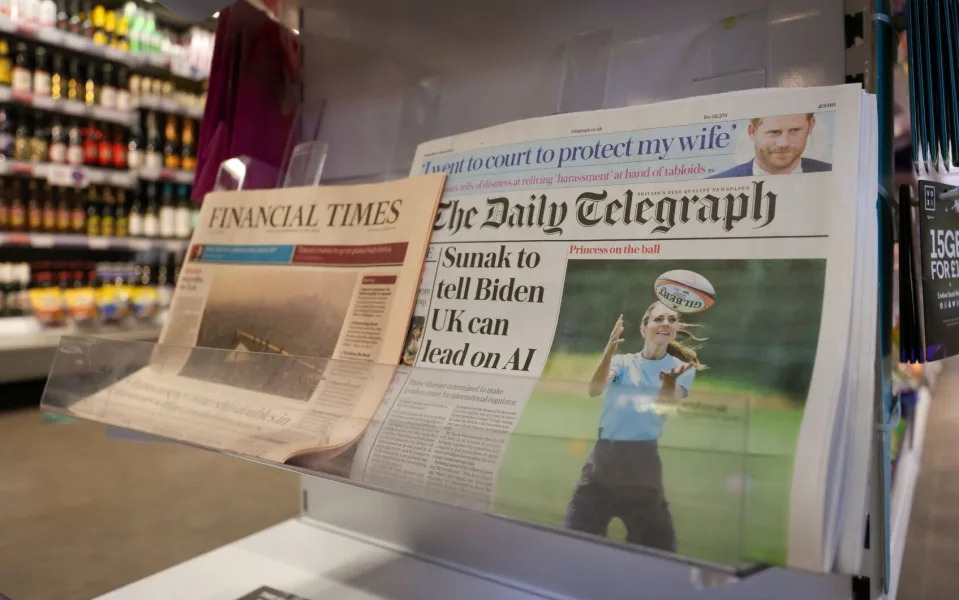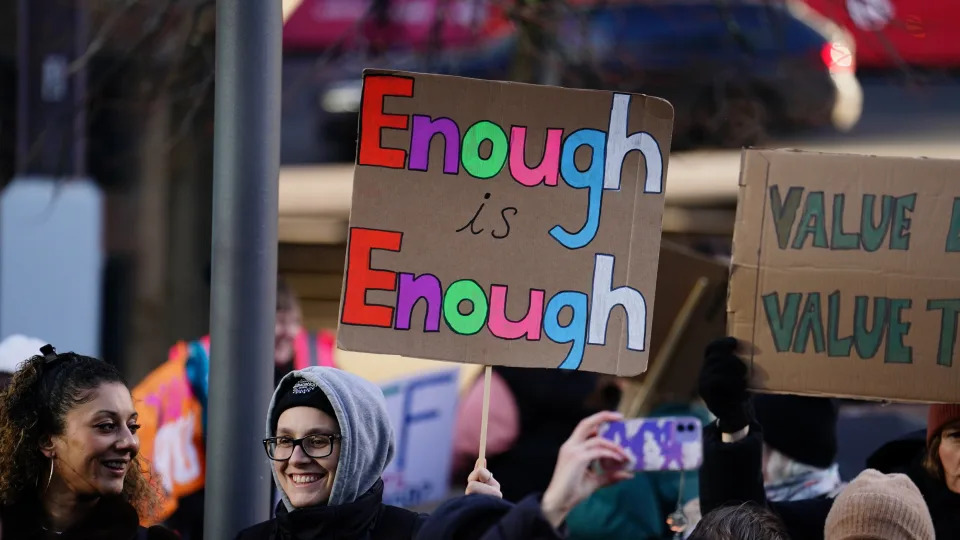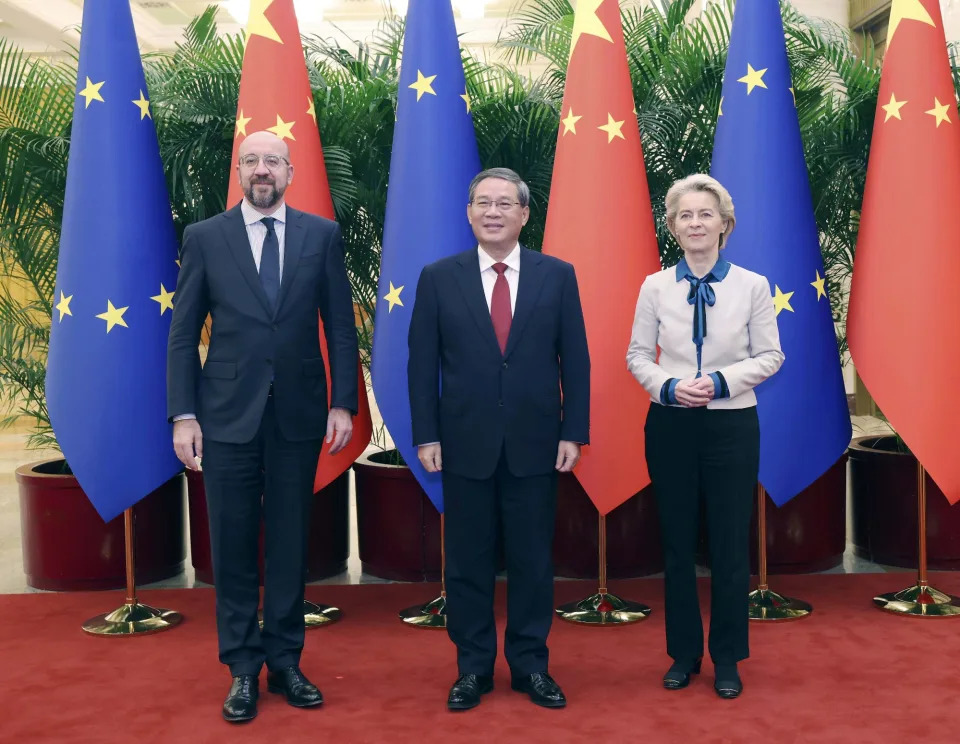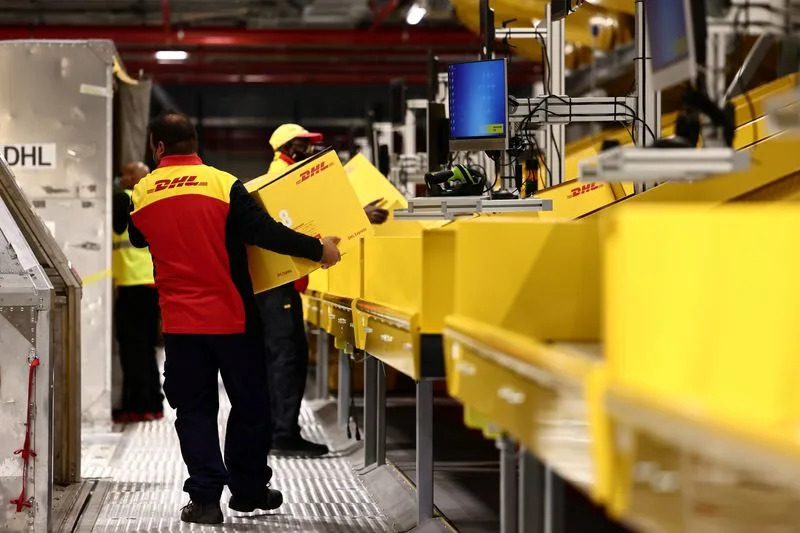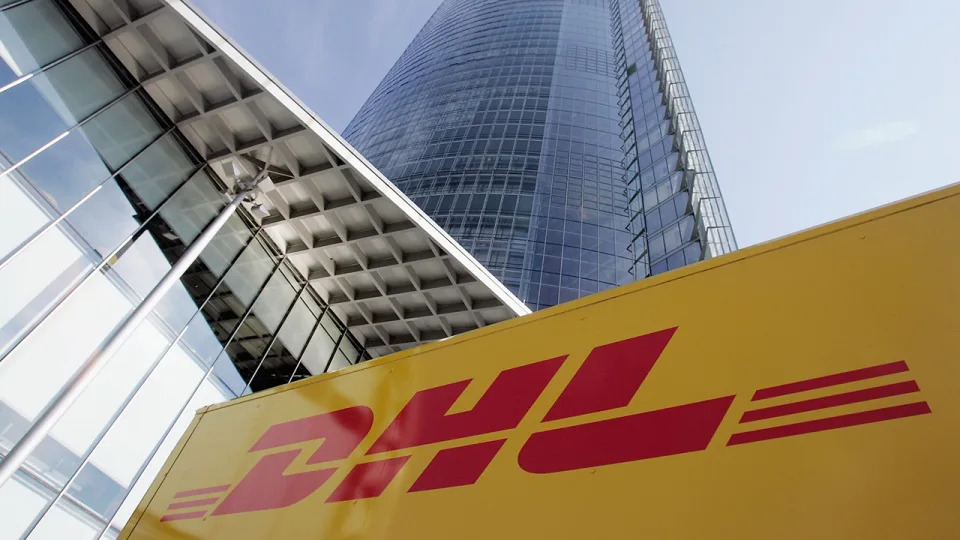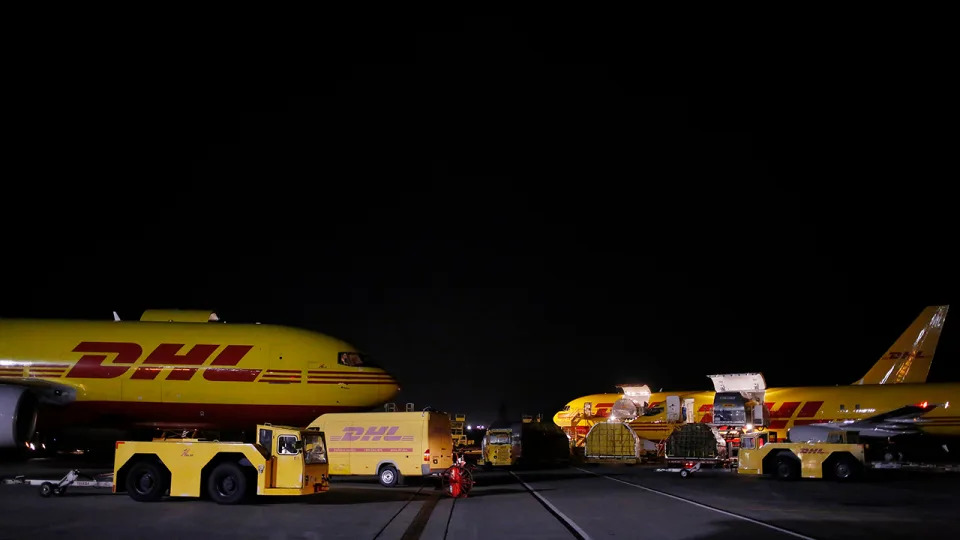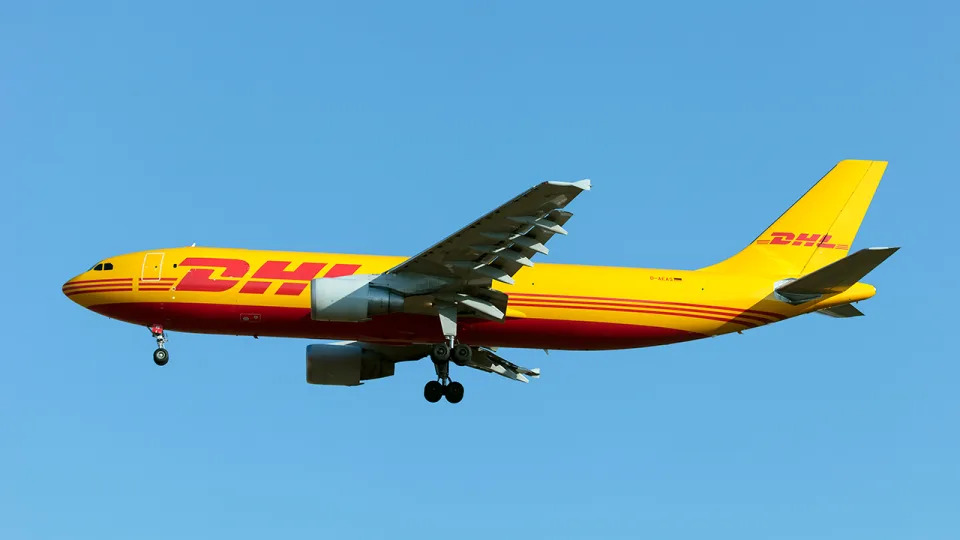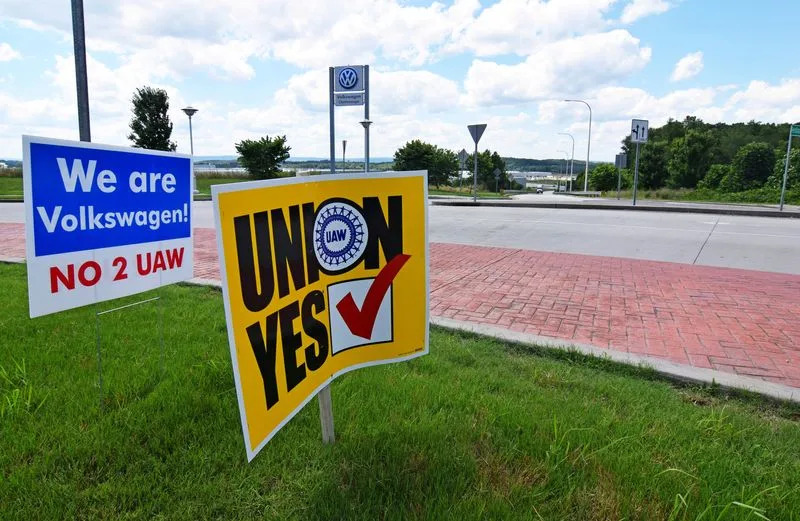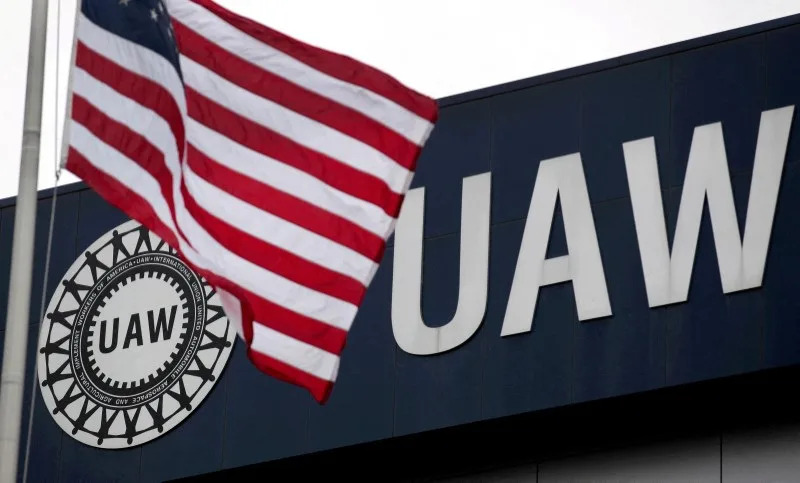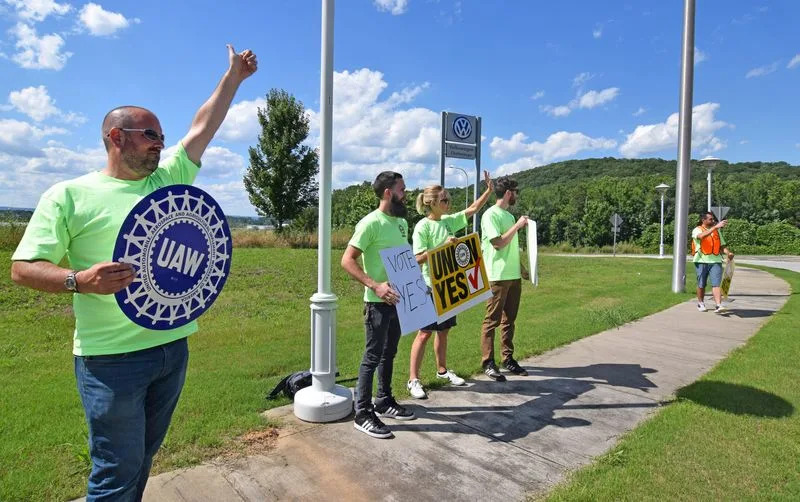Chris Price
Thu, 7 December 2023
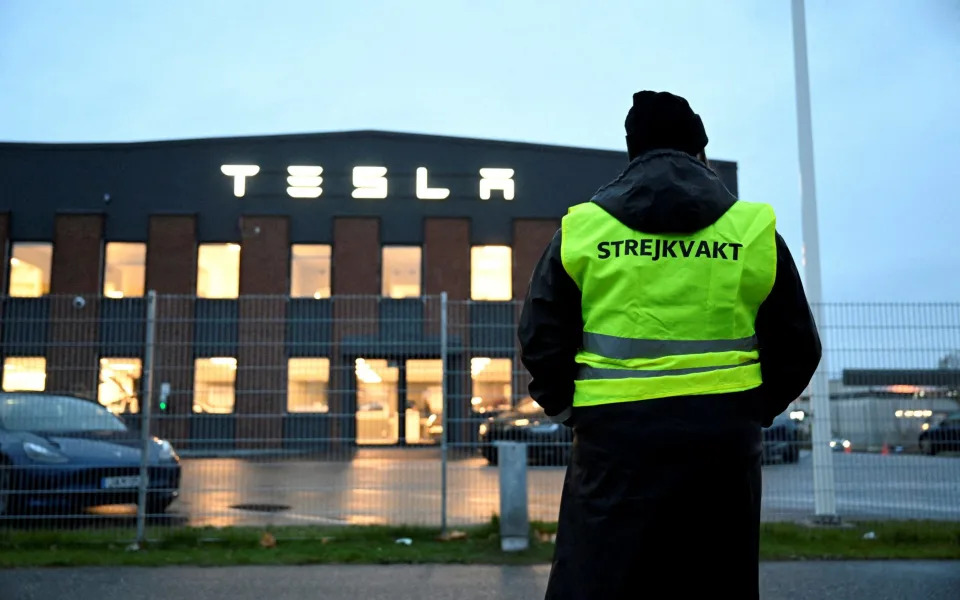
Emma Hansson, chairman of IF Metall, stands on strike outside Tesla's Service Centre in Segeltorp in Stockholm, Sweden - Jessica Gow/TT News Agency/via REUTERS
Tesla has lost a legal battle with Sweden’s postal service as its fight with Scandinavian trade unions escalates.
A Swedish court said postal operator PostNord does not need to deliver licence plates to Tesla that are being blocked by the postal service’s workers, for the time being.
The latest twist in a fight over collective bargaining agreements comes as Tesla is facing growing pressure in Sweden, Norway and Denmark from unions.
They are backing mechanics who work at Sweden’s IF Metall, who went on strike on October 27 demanding a collective agreement with the company.
A large Danish pension fund on Wednesday said it would sell its holdings in Tesla over its refusal to enter into such deals.
The court’s decision comes after Tesla sued PostNord as workers stopped delivering plates for its new cars in a sympathy strike, and is an interim decision ahead of the court’s final ruling.
Tesla’s Scandinavian union rows prompt Danish pension fund to sell stake in protest
One of Denmark’s largest pension funds has dumped its shares in Tesla because of the carmaker’s failure to agree collective bargaining agreements with its workers.
PensionDanmark, which is known for prioritising climate change in its investment strategy, said that it had attempted to influence Tesla’s union policy “directly and coordinated with other shareholders”, but without success.
“In the light of the conflict spreading to Denmark and Tesla’s latest and very categorical denial to reach collective agreements in any country, we have reached the conclusion that we as investors for the time being are unlikely to influence the company. And therefore, we are placing Tesla on our exclusion list,” the company said.
The pension manager’s exclusion list is dominated by fossil fuel businesses, such as ExxonMobil, Gazprom and China’s CNOOC. The addition of Tesla, while continuing to include other companies known to discourage union membership such as Amazon and Starbucks, is an indication of just how acrimonious the fight has become between unions and Tesla in Denmark, Sweden, Norway.
The row began with 130 Swedish mechanics, responsible for servicing Teslas, who wanted the American carmaker to follow the Nordic norm whereby unions and employers jointly set wages and working conditions. Elon Musk, Tesla’s chief executive, described their decision to strike as “insane”.
Dockworkers quickly joined in secondary action against Tesla, refusing to unload the Tesla cars at Sweden’s ports, while postal and courier businesses refused to deliver Tesla licence plates.
Earlier this week, Denmark’s largest trade union, 3F, joined the boycott of Tesla, with its dock workers and drivers refusing to transport Tesla vehicles. Norway’s largest private sector union, Fellesforbundet, has also pledged to join the boycott.
“Even if you are one of the richest people in the world, you can’t just make your own rules,” Jan Villadsen of the 3F union, said. “We have some agreements on the labour market in the Nordics, and you have to comply with them if you want to do business here.”
The decision by PensionDanmark to sell its Tesla investment, reportedly worth £46m, comes despite the pensions company’s commitment to foster greener technology.
Torben Möger Pedersen, its chief executive, said in 2021: “We are in a hurry. There is no time to waste. We have to address climate change now, and what is most needed is massive private investment in the green transition.”
In 2020, it pledged to cut the carbon emissions of its portfolio by at least 22pc by 2025.
Tesla was approached for comment.
One of Denmark’s largest pension funds has dumped its shares in Tesla because of the carmaker’s failure to agree collective bargaining agreements with its workers.
PensionDanmark, which is known for prioritising climate change in its investment strategy, said that it had attempted to influence Tesla’s union policy “directly and coordinated with other shareholders”, but without success.
“In the light of the conflict spreading to Denmark and Tesla’s latest and very categorical denial to reach collective agreements in any country, we have reached the conclusion that we as investors for the time being are unlikely to influence the company. And therefore, we are placing Tesla on our exclusion list,” the company said.
The pension manager’s exclusion list is dominated by fossil fuel businesses, such as ExxonMobil, Gazprom and China’s CNOOC. The addition of Tesla, while continuing to include other companies known to discourage union membership such as Amazon and Starbucks, is an indication of just how acrimonious the fight has become between unions and Tesla in Denmark, Sweden, Norway.
The row began with 130 Swedish mechanics, responsible for servicing Teslas, who wanted the American carmaker to follow the Nordic norm whereby unions and employers jointly set wages and working conditions. Elon Musk, Tesla’s chief executive, described their decision to strike as “insane”.
Dockworkers quickly joined in secondary action against Tesla, refusing to unload the Tesla cars at Sweden’s ports, while postal and courier businesses refused to deliver Tesla licence plates.
Earlier this week, Denmark’s largest trade union, 3F, joined the boycott of Tesla, with its dock workers and drivers refusing to transport Tesla vehicles. Norway’s largest private sector union, Fellesforbundet, has also pledged to join the boycott.
“Even if you are one of the richest people in the world, you can’t just make your own rules,” Jan Villadsen of the 3F union, said. “We have some agreements on the labour market in the Nordics, and you have to comply with them if you want to do business here.”
The decision by PensionDanmark to sell its Tesla investment, reportedly worth £46m, comes despite the pensions company’s commitment to foster greener technology.
Torben Möger Pedersen, its chief executive, said in 2021: “We are in a hurry. There is no time to waste. We have to address climate change now, and what is most needed is massive private investment in the green transition.”
In 2020, it pledged to cut the carbon emissions of its portfolio by at least 22pc by 2025.
Tesla was approached for comment.
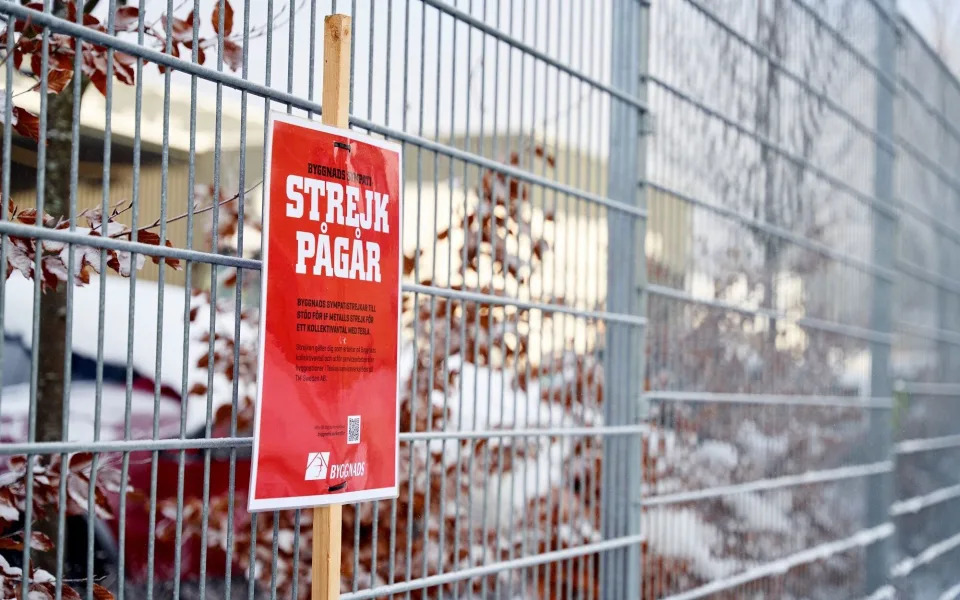
A placard from the IF Metall union outside the Tesla service center in Segeltorp, Sweden, on Tuesday - Erik Flyg/Bloomberg

